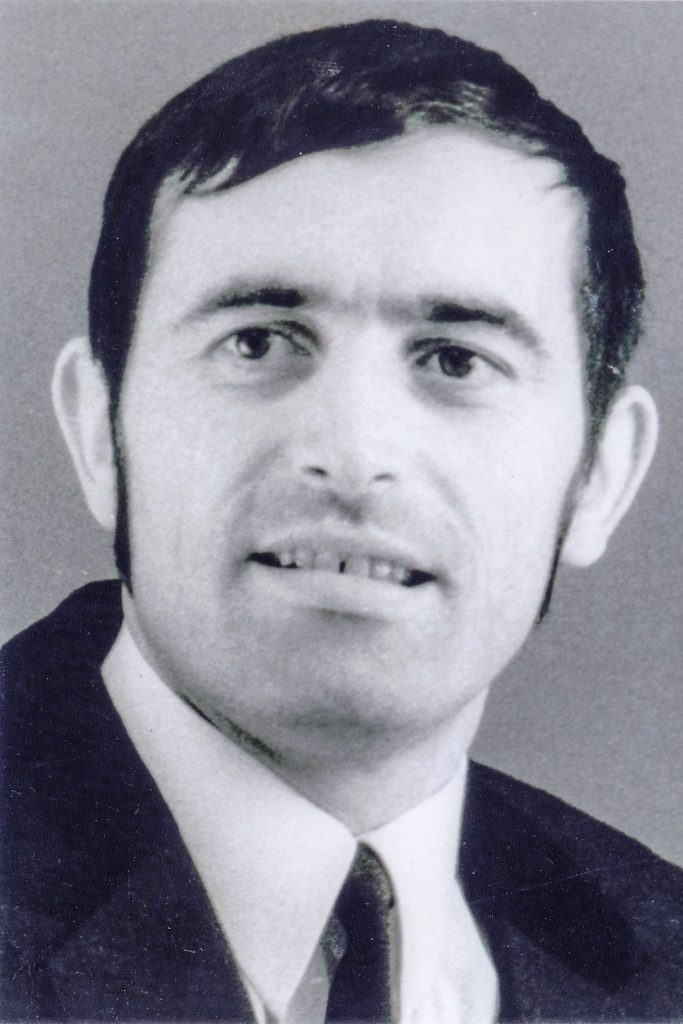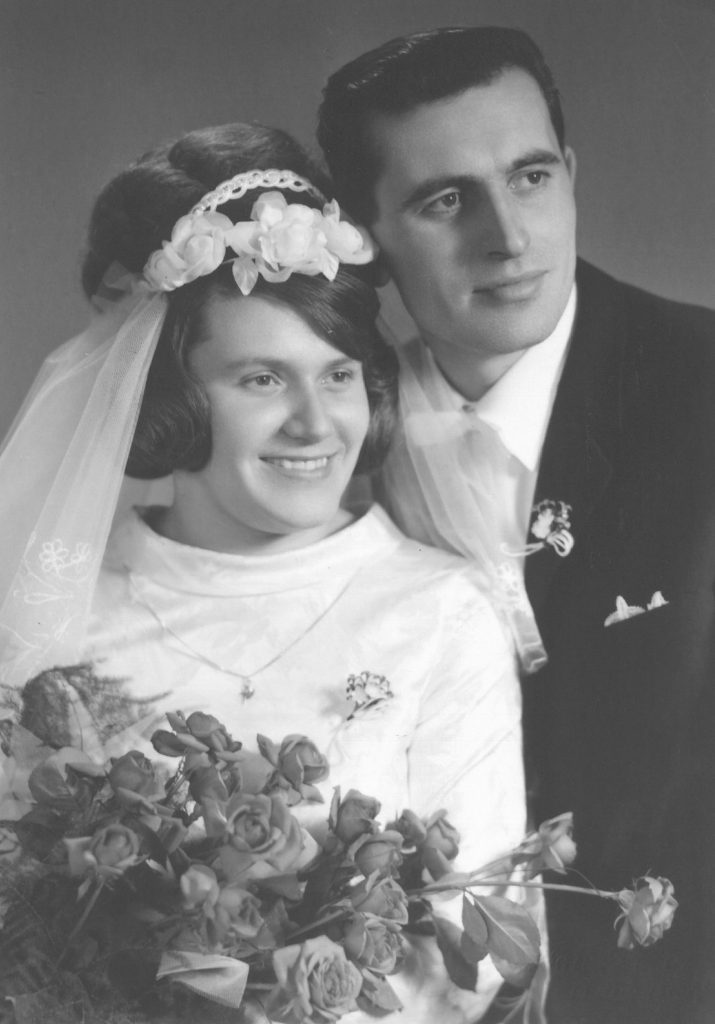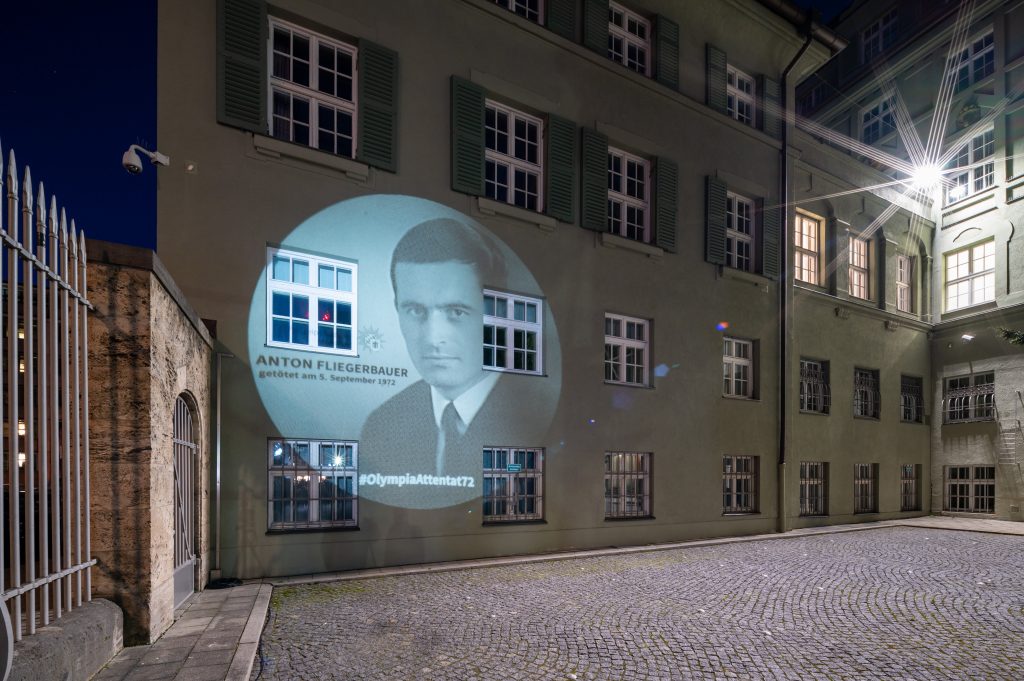
Anton Fliegerbauer was born on March 5, 1940 in Westerndorf in Lower Bavaria, the son of Franziska Fliegerbauer, née Schönhofer, and Anton Fliegerbauer. He grew up on his parents’ farm in Westerndorf together with his two siblings. After leaving school he attended agricultural college in Pilsting and, from then onward, worked on the family and other farms. In 1958 he applied for a position in the Bavarian Bereitschaftspolizei—the riot police—and was accepted by the force in Landshut. In 1960 he was made Polizeiwachtmeister.
He met Maria Theresia Schmidbauer at a dance and they became engaged in July 1964. In September that same year Fliegerbauer applied to be transferred to Munich so that the two could live together in Maria Theresia’s apartment in the Schwabing neighborhood of Munich. In his application he explained that, as a young policeman, a large part of his salary went on his rent in Landshut, even for the cheapest accommodation. His transfer was granted and Fliegerbauer was given the position of Polizeihauptwachmeister in Munich.

The couple married on February 12, 1966. One year later Anton Fliegerbauer was made a civil servant. On April 5, 1968 their son, Alfred, was born. In September 1970 Fliegerbauer uncovered a drug courier for which he received a commendation for “special services in the combat against street crime.”
September 5 was the first day of his vacation and he intended to go to Lower Bavaria with his family. Just three days before, he had suffered bruising and a pulled tendon in his left foot during a demonstration. That morning, however, he received a call from his superior, summoning him to report for duty as members of the Israeli delegation had been taken hostage in the Olympic Village. Fliegerbauer was an excellent marksman and was deployed immediately to the airfield in Fürstenfeldbruck where the assassins had entrenched themselves with the Israeli hostages. Like his colleagues, he had not received any training to combat terrorism while in the police force. During an exchange of fire after nightfall Fliegerbauer was fatally hit. His death was classified as a work-related accident and he was given a state funeral on September 8, 1972.
On the morning of September 6 Marie Fliegerbauer was informed that her husband had been killed during the skirmish. She was pregnant at the time but lost her child a few months later. For a long time afterward she told her son that his father was in hospital.
Text: Angela Libal, Sarah Steinborn; Translation: Christopher Wynne; Research: Piritta Kleiner, Bayerisches Staatsministeriums für Unterricht und Kultus
TWELVE MONTHS – TWELVE NAMES
50 Years Olympic Massacre Munich
To mark the 50th anniversary of the Summer Olympics in Munich, the Munich Massacre of September 5–6, 1972 is to be commemorated throughout 2022. Each month the biography of a different victim is presented. A variety of different actions in public spaces is planned, ranging from installations lasting an entire month to activities on one specific day.
This commemoration project has been conceived and coordinated by the Jewish Museum Munich and the Munich Documentation Centre for the History of National Socialism, in conjunction with the Consulate General of the State of Israel. It is being implemented with cooperation partners including the Amerikahaus Munich, the Landkreis Fürstenfeldbruck, the Deutsches Theater, the Police College, Fürstenfeldbruck and the Munich Police Headquarters, as well as other cultural and educational institutions and interested parties.
February

In February, the Munich Police Headquarters and the Police College—Hochschule für den öffentlichen Dienst in Bayern – Fachbereich Polizei in Fürstenfeldbruck commemorate Anton Fliegerbauer. A photograph of Anton Fliegerbauer will be projected on the façade of the Munich Police Headquarters at Ettstrasse 2, Munich from February 10 onward. A lecture is to be held at the Police College in Fürstenfeldbruck on February 22 as well. The agenda includes an address by contemporary witnesses, a historical outline of events, as well as a talk on lessons learned by the police from the Munich Massacre.
The events are being staged in conjunction with the History Association in Fürstenfeldbruck and the Munich Documentation Centre for the History of National Socialism. For further infromation please see our website.
Follow the commemorative project on our social media channels as well under the hashtag #MunichMassacre72
